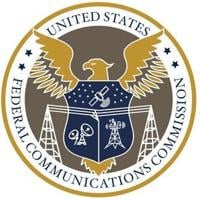The Federal Communications Commission on Tuesday voted to consider relaxing – or outright eliminating – long-running rules that limit the number of radio stations a company can own in a local market.
The next step in the Quadrennial Review of its broadcast ownership limits will have the Commission seek public comments before deciding how to proceed with its Local Radio Ownership Rule.
The vote came during a marathon three-hour open meeting that included a swarm of national news outlets and a chorus of protesters. It officially launched a Notice of Proposed Rulemaking (NPRM) that would also reassess rules that prohibit a merger of any of the four largest broadcast TV networks and prevent a company from owning more than two TV stations in a local market.
While the final text of the rulemaking has not yet been publicly released, Media Bureau officials said it is essentially the same as a draft issued earlier this month but also contains edits suggested by Commissioner Anna Gomez, the sole Democrat on the current three-member Commission.
Chairman Brendan Carr signaled he supports major changes. “The old regulatory silos have been breaking down for quite some time, so the Commission must move forward with a keen understanding of today’s converged markets—and that’s exactly what we’re doing with today’s item,” Carr said at the meeting. “In recent years, numerous online audio and video streaming services have emerged, fundamentally changing how broadcast radio and television compete in the media marketplace. Our broadcast ownership rules should reflect these changes.”
Is Radio Still Its Own Market?
Carr said a July federal appeals court decision, which struck down the agency’s continued ban on same-market ownership of top-rated TV stations, underscored “the deregulatory nature of the Quadrennial Review provisions that Congress added to the statute.” He pledged to take a “fresh approach” to competition by scrutinizing the larger media marketplace, rather than continuing to treat broadcast radio and television as isolated markets.
“In recent years, numerous online audio and video streaming services have emerged, fundamentally changing how broadcast radio and television compete in the media marketplace,” Carr observed. “Our broadcast ownership rules should reflect these changes.”
Commissioner Olivia Trusty echoed that position. “The marketplace has been changing rapidly, driven by technological innovation and evolving consumer preferences,” she said during the meeting. Trusty said she looks forward to ensuring the FCC’s media ownership rules “are appropriately modernized to reflect the current marketplace.”
In addition to providing further efficiencies of scale, broadcasters are hopeful that relaxed ownership rules will spur more investment in the business. Carr’s comments suggest he agrees with that take. “Our primary goal is to promote investment in local broadcasters who provide trusted news and information vital to the communities they serve,” he explained. “We will also consider whether public safety, national security, and other public interest goals should be part of this review. If we determine that any rule no longer serves the public interest, we will fulfill our statutory duty to modify or eliminate those rules.”
Public Interest Standard
The litmus test for a potential media ownership rules rewrite is whether the existing regs still serve the public interest in light of emerging technologies and constantly changing media marketplace conditions.
While Carr and Commissioners Trusty and Gomez voted in favor of the NPRM, where each one ultimately lands on the media ownership hot potato may vary dramatically. Gomez called on stakeholders to come up with rule changes “that would both shore up the economics of broadcast television and preserve the public interest.” She called it a pivotal moment for the FCC to ensure its rules “prioritize viewpoint diversity and incentivize broadcasters to serve their communities of license.”
To illustrate her concerns, Gomez said she heard from a consumer in Eugene, OR who said that four of the five stations in her market that broadcast local news are owned by a single entity. This consumer “raised concerns that the commonly owned stations all share the same crew, reporters and on-air personnel,” Gomez said. “This limits the points of view available when it comes to local news.”
Gomez, a staunch defender of free speech rights, referenced implied threats to broadcast companies made by Carr during a podcast over remarks made by comedian Jimmy Kimmel on his ABC-syndicated late-night broadcast TV show. “That led to a new low of corporate capitulation that put the foundation of the First Amendment in danger,” Gomez said. “This was no simple business decision. It was an act of clear government intimidation. And while the FCC does not have the authority, the ability, or the constitutional right to police lawful content or to punish broadcasters for speech the government dislikes, even the threat of revoking a license is no small matter. It poses an existential risk to a broadcaster that cannot exist without its license.”
Gomez also cautioned against the “danger of allowing vast and unfettered media consolidation,” arguing it could “drastically alter the media ecosystem and the number of voices that are a part of it.” – Paul Heine for Inside Radio
